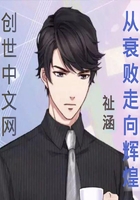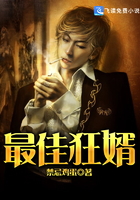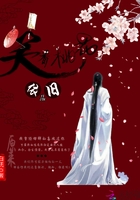This is no laughing matter; I wouldn't give a farthing for our skins if we don't turn the odds in our favor at once."While Merle was executing this order with a rapidity of which he fully understood the importance, the commandant waved his right hand to enforce silence on the soldiers, who were standing at ease, and laughing and joking around him.With another gesture he ordered them to take up arms.When quiet was restored he turned his eyes from one end of the road to the other, listened with anxious attention as though he hoped to detect some stifled sound, some echo of weapons, or steps which might give warning of the expected attack.His black eye seemed to pierce the woods to an extraordinary depth.Perceiving no indications of danger, he next consulted, like a savage, the ground at his feet, to discover, if possible, the trail of the invisible enemies whose daring was well known to him.Desperate at seeing and hearing nothing to justify his fears, he turned aside from the road and ascended, not without difficulty, one or two hillocks.The other officers and the soldiers, observing the anxiety of a leader in whom they trusted and whose worth was known to them, knew that his extreme watchfulness meant danger; but not suspecting its imminence, they merely stood still and held their breaths by instinct.Like dogs endeavoring to guess the intentions of a huntsman, whose orders are incomprehensible to them though they faithfully obey him, the soldiers gazed in turn at the valley, at the woods by the roadside, at the stern face of their leader, endeavoring to read their fate.They questioned each other with their eyes, and more than one smile ran from lip to lip.
When Hulot returned to his men with an anxious look, Beau-Pied, a young sergeant who passed for the wit of his company, remarked in a low voice: "Where the deuce have we poked ourselves that an old trooper like Hulot should pull such a gloomy face? He's as solemn as a council of war."Hulot gave the speaker a stern look, silence being ordered in the ranks.In the hush that ensued, the lagging steps of the conscripts on the creaking sand of the road produced a recurrent sound which added a sort of vague emotion to the general excitement.This indefinable feeling can be understood only by those who have felt their hearts beat in the silence of the night from a painful expectation heightened by some noise, the monotonous recurrence of which seems to distil terror into their minds, drop by drop.
The thought of the commandant, as he returned to his men, was: "Can Ibe mistaken?" He glanced, with a concentrated anger which flashed like lightning from his eyes, at the stolid, immovable Chouan; a look of savage irony which he fancied he detected in the man's eyes, warned him not to relax in his precautions.Just then Captain Merle, having obeyed Hulot's orders, returned to his side.
"We did well, captain," said the commandant, "to put the few men whose patriotism we can count upon among those conscripts at the rear.Take a dozen more of our own bravest fellows, with sub-lieutenant Lebrun at their head, and make a rear-guard of them; they'll support the patriots who are there already, and help to shove on that flock of birds and close up the distance between us.I'll wait for you."The captain disappeared.The commander's eye singled out four men on whose intelligence and quickness he knew he might rely, and he beckoned to them, silently, with the well-known friendly gesture of moving the right forefinger rapidly and repeatedly toward the nose.
They came to him.
"You served with me under Hoche," he said, "when we brought to reason those brigands who call themselves 'Chasseurs du Roi'; you know how they hid themselves to swoop down on the Blues."At this commendation of their intelligence the four soldiers nodded with significant grins.Their heroically martial faces wore that look of careless resignation to fate which evidenced the fact that since the struggle had begun between France and Europe, the ideas of the private soldiers had never passed beyond the cartridge-boxes on their backs or the bayonets in front of them.With their lips drawn together like a purse when the strings are tightened, they looked at their commander attentively with inquiring eyes.
"You know," continued Hulot, who possessed the art of speaking picturesquely as soldier to soldiers, "that it won't do for old hares like us to be caught napping by the Chouans,--of whom there are plenty all round us, or my name's not Hulot.You four are to march in advance and beat up both sides of this road.The detachment will hang fire here.Keep your eyes about you; don't get picked off; and bring me news of what you find--quick!"So saying he waved his hand towards the suspected heights along the road.The four men, by way of thanks raised the backs of their hands to their battered old three-cornered hats, discolored by rain and ragged with age, and bent their bodies double.One of them, named Larose, a corporal well-known to Hulot, remarked as he clicked his musket: "We'll play 'em a tune on the clarinet, commander."They started, two to right and two to left of the road; and it was not without some excitement that their comrades watched them disappear.
The commandant himself feared that he had sent them to their deaths, and an involuntary shudder seized him as he saw the last of them.
Officers and soldiers listened to the gradually lessening sound of their footsteps, with feelings all the more acute because they were carefully hidden.There are occasions when the risk of four lives causes more excitement and alarm than all the slain at Jemmapes.The faces of those trained to war have such various and fugitive expressions that a painter who has to describe them is forced to appeal to the recollections of soldiers and to leave civilians to imagine these dramatic figures; for scenes so rich in detail cannot be rendered in writing, except at interminable length.















